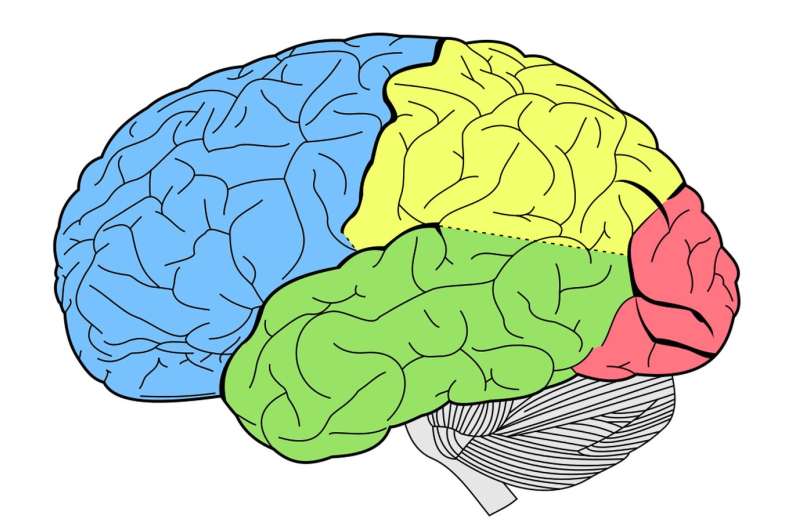September 15, 2023 report
This article has been reviewed according to Science X's editorial process and policies. Editors have highlighted the following attributes while ensuring the content's credibility:
fact-checked
peer-reviewed publication
trusted source
proofread
Overeating and addiction may have roots in early human brain evolution and prosocial behaviors

Research led by the Department of Anthropology and School of Biomedical Sciences, Kent State University, Ohio, has investigated neuropeptide Y innervation in an area of the brain called the nucleus accumbens of various primate species, including humans. The research was focused on understanding its role in brain evolution and any implications for human health, particularly regarding addiction and eating disorders.
In a paper, "Hedonic eating, obesity, and addiction result from increased neuropeptide Y in the nucleus accumbens during human brain evolution," published in PNAS, the researchers suggest that the combination of increased neuropeptide Y (NPY) and dopamine (DA) within the human nucleus accumbens (NAc) may have allowed for enhanced brain development. This same configuration may have also made humans exceptionally vulnerable to eating disorders and substance abuse, hinting at addictive traits having a deep evolutionary origin.
NPY plays a role in the reward system, emotional behavior and is associated with increased alcohol use, drug addiction and fat intake. The NAc brain region is central to motivation and action, exhibiting one of the highest densities of NPY in the brain and is of great interest to researchers investigating brain-related promoters of addiction.
Researchers used postmortem brain specimens from 74 individuals, including seven humans, representing 13 great ape and monkey primate species. The data shows that the human brain has much denser NPY innervation within the NAc, as measured by axon length density to neuron density, compared to other primates.
Humans and chimpanzees were noted to share higher NPY in their dorsal striatum compared to gorillas and monkeys. When examining cortical NPY-ir (NPY-immunoreactive) neuron densities in Brodmann's area 22, no significant differences were found among human and nonhuman primate species.
The report highlighted that the human brain is distinct among primates, being significantly larger relative to body mass and having higher basal metabolic rates. This necessitates a consistent supply of potential energy stores (such as fat and glycogen) and higher body fatness in humans than other primates.
The NAc is considered a "hedonic hotspot" that amplifies the drive for palatable taste. While the adoption of cooking is often considered pivotal for supporting brain expansion, the preference for fat-rich foods may have preceded it by millions of years.
The authors speculate that a preference for fat-rich foods, driven by elevated NPY in the human NAc, may have played a role in the expansion of the human brain during the Plio-Pleistocene (~5 million years ago).
The researchers point out that Plio-Pleistocene bipedal hominins possessed reduced, nondimorphic male canines, demonstrating a major shift in social behavior from aggressive to more affiliative. Increased nucleus accumbens NPY may have influenced prosocial behaviors in early humans, including monogamous pair bonding.
This dietary shift, driven by the preferences and requirements in the brain, could have been accompanied by changes in socio-behavioral strategies and may have contributed to the success of early human ancestors.
The study concludes that the shift in NAc function, possibly driven by increased fat intake, could have deep evolutionary origins and may have contributed to the unique responsiveness of the human reward pathway to various stimuli. This same pathway makes current modern humans more susceptible to reward pathway addictions than other primates.
More information: Mary Ann Raghanti et al, Hedonic eating, obesity, and addiction result from increased neuropeptide Y in the nucleus accumbens during human brain evolution, Proceedings of the National Academy of Sciences (2023). DOI: 10.1073/pnas.2311118120
© 2023 Science X Network




















